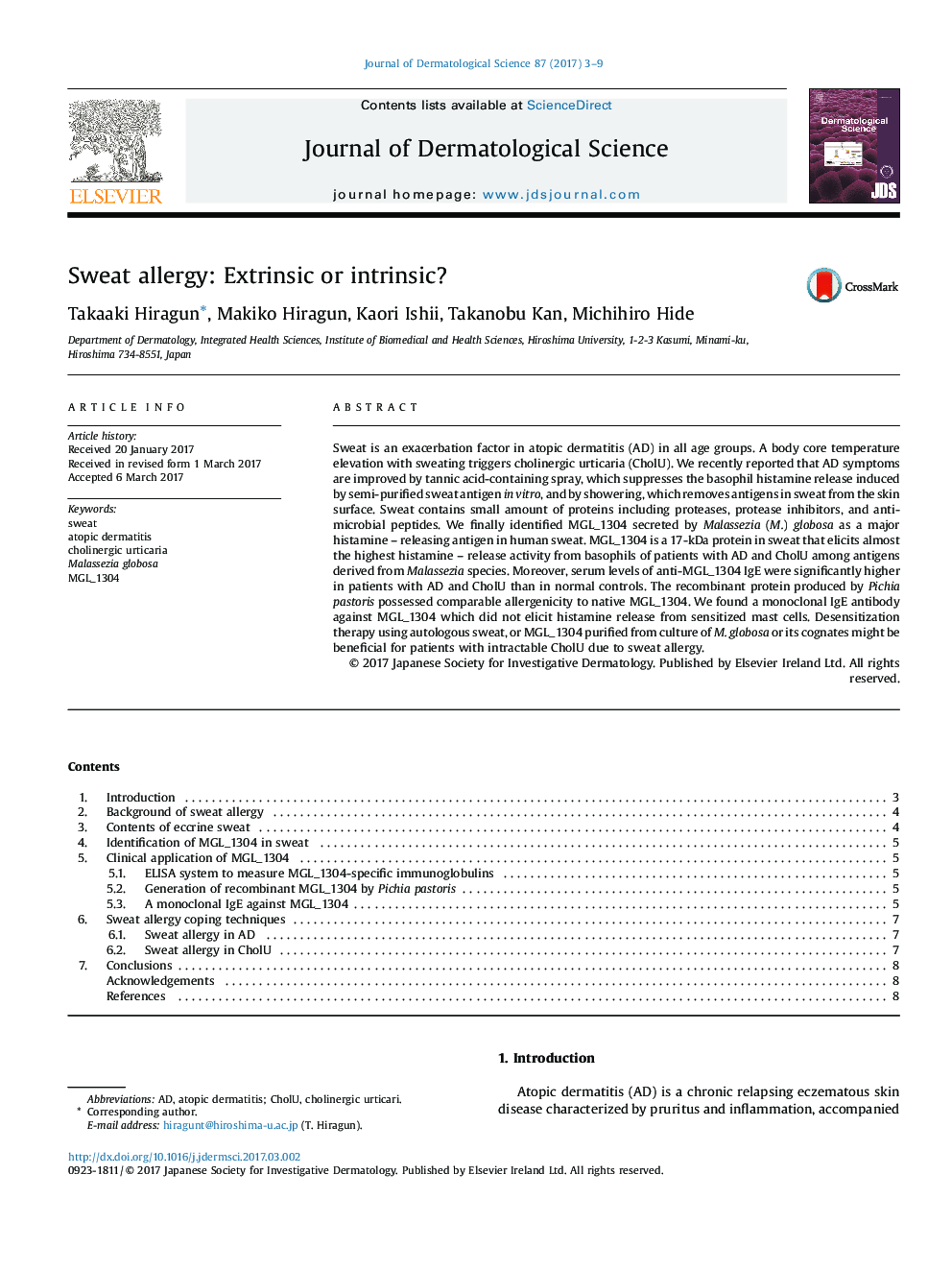| Article ID | Journal | Published Year | Pages | File Type |
|---|---|---|---|---|
| 5649114 | Journal of Dermatological Science | 2017 | 7 Pages |
Sweat is an exacerbation factor in atopic dermatitis (AD) in all age groups. A body core temperature elevation with sweating triggers cholinergic urticaria (CholU). We recently reported that AD symptoms are improved by tannic acid-containing spray, which suppresses the basophil histamine release induced by semi-purified sweat antigen in vitro, and by showering, which removes antigens in sweat from the skin surface. Sweat contains small amount of proteins including proteases, protease inhibitors, and anti-microbial peptides. We finally identified MGL_1304 secreted by Malassezia (M.) globosa as a major histamine - releasing antigen in human sweat. MGL_1304 is a 17-kDa protein in sweat that elicits almost the highest histamine - release activity from basophils of patients with AD and CholU among antigens derived from Malassezia species. Moreover, serum levels of anti-MGL_1304 IgE were significantly higher in patients with AD and CholU than in normal controls. The recombinant protein produced by Pichia pastoris possessed comparable allergenicity to native MGL_1304. We found a monoclonal IgE antibody against MGL_1304 which did not elicit histamine release from sensitized mast cells. Desensitization therapy using autologous sweat, or MGL_1304 purified from culture of M. globosa or its cognates might be beneficial for patients with intractable CholU due to sweat allergy.
